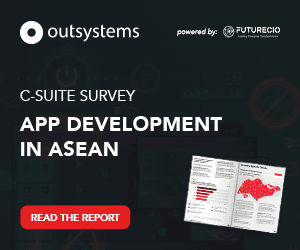No matter where you sit in a business, you’ll likely have heard of environmental, social, and governance (ESG). Your peers in finance, legal/compliance, and risk will have heard of it a lot. And we’ll all be hearing a lot more about it in the coming years.
But ESG can mean a lot of different things, depending on who is saying it and the context in which they’re saying it, which leads to confusion. To pin it down and help organisations make faster progress with ESG, we’ll examine it and its significance, application, and adoption across three blogs:
- An introduction to ESG and a look at its significance, for those new to the space, on boards, and in other leadership roles.
- An exploration of ESG as it’s being used by three key markets, their different agendas for it, and what this means for businesses.
- An analysis of ESG within the business and how it impacts the organisational structure, business strategy, data management and processes, and partnerships, depending on the company’s relative maturity.
What is ESG?
Essentially, ESG denotes the qualitative and quantitative data that either:
describes a business’s environmental status, societal characteristics, and corporate governance (thus ‘E’ for environment, ‘S’ for social and ‘G’ for governance) or …
… reflects a business’s or sector’s or investment’s exposure to, and management of, environmental-, social-, or governance-related risks.
The data points can vary, but the World Economic Forum and Sustainability Accounting Standards Board provide common lists.
The significance for businesses
Interest in ESG started with arguments such as those of Harvard economist Michael Porter that businesses (and capitalism as a whole) benefit from thinking about value generation beyond the purely economic — that is, businesses should focus their value generation on all of their stakeholders (including communities, employees, and customers), not just shareholders or owners.
This broader interpretation of value would provide for longer-term competitiveness, profit, and business health because it both drives down risk and makes the most of scarce resources. In fact, it was the investment community that coined the term, as they sought to widen their analysis to nonfinancial factors that reflected either material risks or growth opportunities — an analysis they called “ESG” for its three primary components.
This broader understanding of value generation has worked its way into the echelons of corporate management; even the cradle of Milton “profit is everything” Friedman, the University of Chicago Booth School of Business, teaches ESG.
ESG performance, the managerial decisions that drive it, and the data points that reflect it have become a form of proxy measurement of the quality of a business’s management, right alongside its financial data. Naturally, they have then become a matter of board attention, leaders’ attention, and operational discussions, with supporting functions, processes, and technologies across a company.
ESG now features much more prominently in just about every company’s key strategic discussions, especially at its highest levels. As the battle over Exxon last year and McDonald’s right now shows, these decisions determine the futures of companies. And Elon Musk’s recent ESG rant on Twitter, meant to disparage the term, reveals its importance even in companies that resist its influence.
Expect ESG to become more important, driven especially by climate change and scrutiny of capitalism’s social impact but also by companies’ efforts to seek competitive advantage and differentiation and investors’ desire to incorporate nonfinancial analysis for better returns.
The next post in this series will explore three key groups using the ESG term in a commercial context, their agenda for doing so, and what it means for businesses.
First published on Forrester blogs




